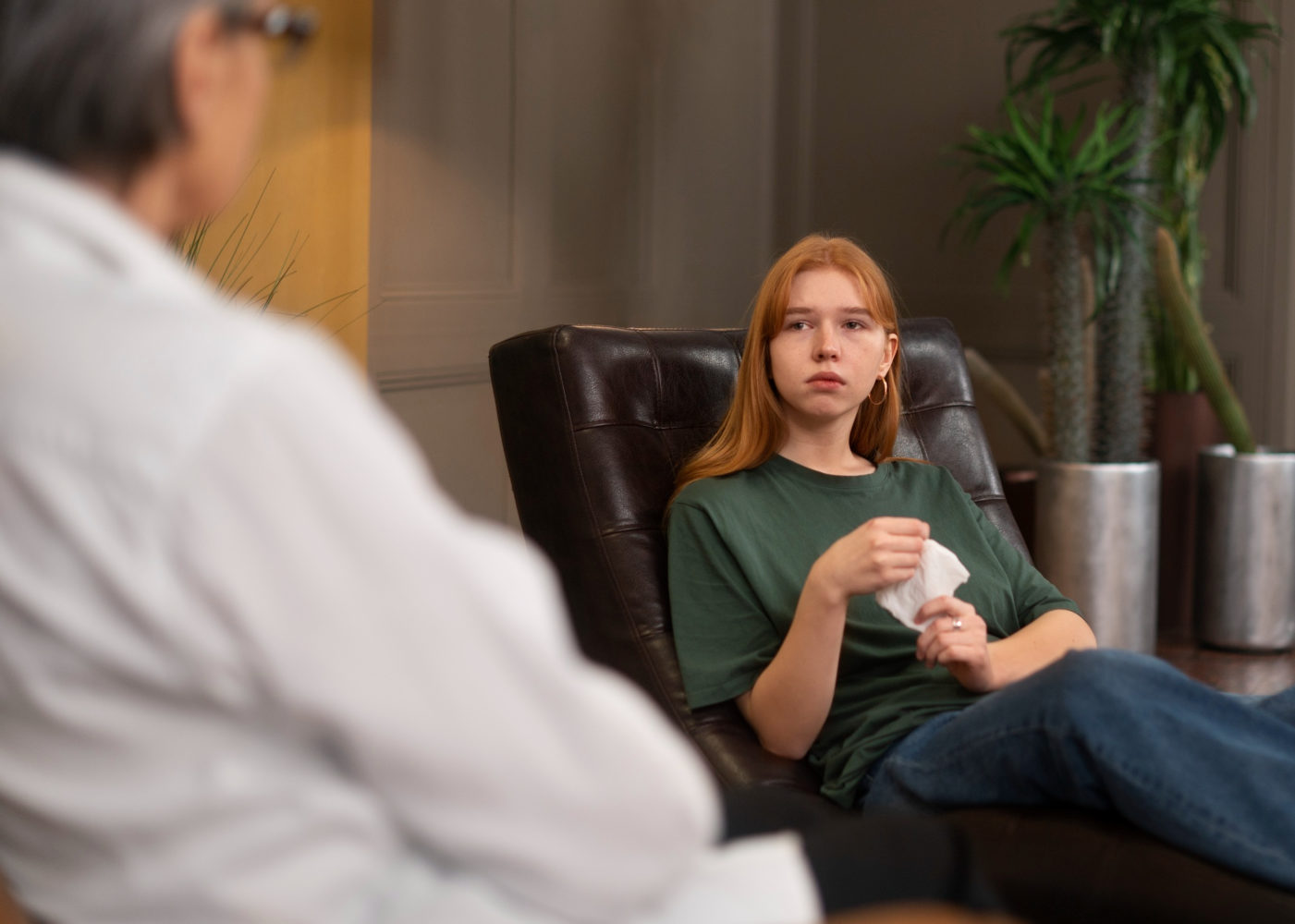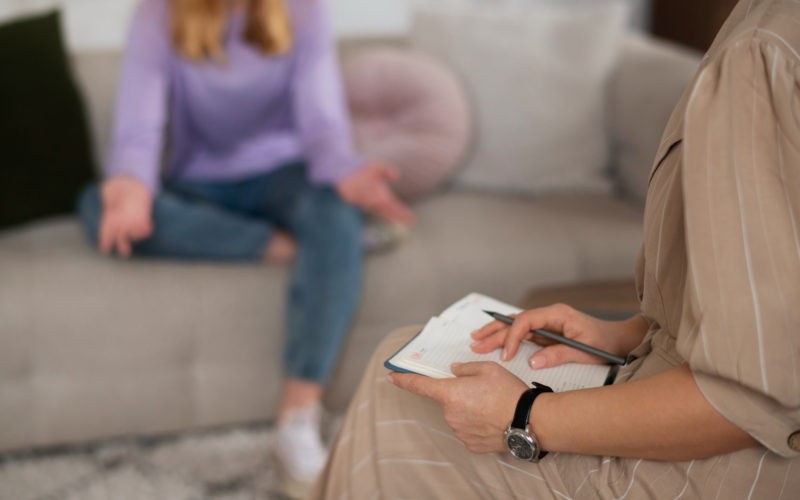Teen depression is more common than many people realize, and finding the right support can make a world of difference. If you’re a parent, guardian, or teen looking for answers, it’s important to know that there isn’t just one way to treat depression.
Therapy plays a big role in helping teens feel better, but not all therapy looks the same. From talk therapy to creative approaches, different options work for different people. In this blog, we’ll break down the most effective types of therapy for teen depression so you can better understand what might help your loved one feel like themselves again.
Getting Started: What Parents Need to Know
Understanding your teen’s specific needs is the first step toward finding effective help. Sometimes it’s tough to tell if your teen is just going through normal adolescent mood swings or if they’re dealing with something more serious. Look for persistent changes in sleep patterns, appetite, or social behavior that last more than two weeks.
Teen depression treatment varies significantly depending on the severity of symptoms, your child’s personality, and what’s causing their distress in the first place. If your teenager withdraws from activities they once enjoyed or expresses feelings of hopelessness, it’s time to consider professional support. Not all therapists work the same way, and finding someone who connects with your teen makes a huge difference.
Look for licensed professionals who specialize in adolescent care and have experience with therapy options for teens. Don’t hesitate to ask potential therapists about their approach and whether they’ve worked with similar cases.
Most insurance plans cover mental health services, but it’s worth checking what’s included before you start. Some therapists offer sliding scale fees, and many community centers provide affordable options for families who need them. The variety of available treatments means you’ll likely find something that works for your family’s situation and budget.
Core Therapy Approaches That Work
Mental health therapy for teens has evolved significantly over the past few decades, with research backing several effective approaches. Each method has its strengths, and what works best often depends on your teenager’s specific challenges and personality.
Cognitive Behavioral Therapy (CBT)
CBT helps teens identify negative thought patterns and replace them with more balanced thinking. This approach teaches practical skills that teens can use long after therapy ends. Many therapists consider CBT the gold standard for treating teen depression because it’s been studied extensively and consistently shows positive results.
Your teen will learn to recognize when their thoughts are spiraling downward and practice techniques to interrupt those patterns. CBT typically involves homework assignments and real-world practice, making it very hands-on.
Dialectical Behavior Therapy (DBT)
DBT is particularly helpful for teens who struggle with intense emotions or have difficulty managing stress. This approach combines CBT techniques with mindfulness practices, helping teens learn to tolerate difficult feelings without acting impulsively. Many teens find DBT especially useful because it acknowledges that some pain is unavoidable while teaching them how to cope with it effectively.
Family-Based Therapy
Sometimes the whole family needs to be involved in the healing process. Family therapy can help improve communication patterns and address relationship issues that might be contributing to your teen’s depression. This approach recognizes that teens don’t exist in isolation – they’re part of a family system that can either support or hinder their recovery.
These core approaches often work better when combined with other interventions, creating a comprehensive treatment plan.
Specialized Treatment Options
Beyond the mainstream approaches, several specialized therapies can be particularly effective for teens dealing with depression. Adolescent depression therapy has expanded to include innovative methods that appeal to young people’s unique needs and preferences.
Art and Music Therapy
Creative therapies can be game-changers for teens who struggle to express their feelings verbally. Art therapy allows them to explore emotions through drawing, painting, or sculpture, while music therapy might involve writing songs or playing instruments. These approaches can be especially helpful for teens who feel overwhelmed by traditional talk therapy.
Group Therapy
Many teens benefit from connecting with peers who understand what they’re going through. Group therapy provides a supportive environment where teens can share experiences and learn from each other. It’s often less intimidating than individual therapy and can help reduce the isolation that frequently comes with depression.
Eye Movement Desensitization and Reprocessing (EMDR)
If your teen’s depression stems from trauma, EMDR can be incredibly effective. This approach helps process traumatic memories without having to talk about them extensively. Many teens find EMDR less overwhelming than traditional trauma therapy because it doesn’t require detailed verbal processing of difficult experiences.
Mindfulness-Based Interventions
Teaching teens mindfulness skills can help them manage anxiety and depression symptoms. These approaches focus on present-moment awareness and acceptance rather than trying to change or fix feelings immediately. Many teens appreciate learning practical tools they can use anywhere, anytime.
Each of these specialized approaches offers unique benefits, and many can be combined with traditional therapy methods.

Making the Right Choice for Your Teen
Choosing the best therapy for teen mental health doesn’t have to be a permanent decision. Many families try different approaches until they find what works best for their situation.
Factors to Consider
Your teen’s personality plays a huge role in determining which therapy approach will be most effective. Some teens thrive in group settings, while others prefer individual attention. Consider whether your teenager is more verbal or would benefit from creative expression techniques.
The severity of symptoms also matters. Mild depression might respond well to brief CBT interventions, while more severe cases might require longer-term, intensive treatment. Don’t be afraid to ask potential therapists about their recommendations based on your teen’s specific situation.
Involving Your Teen in the Decision
Whenever possible, include your teenager in choosing their therapist and treatment approach. Teens are more likely to engage in therapy when they feel some control over the process. Let them meet potential therapists and ask questions about different methods.
When to Consider Combination Approaches
Sometimes the most effective treatment involves combining different therapy types. For example, your teen might benefit from individual CBT sessions along with family therapy or group support. Many successful treatment plans include multiple approaches tailored to address different aspects of depression.
Remember that finding the right fit might take time, and it’s okay to make adjustments along the way.
What to Expect During Treatment
Understanding the therapy process can help both you and your teen feel more comfortable about getting started. Most therapeutic approaches follow similar patterns, though the specific techniques will vary.
Initial Assessment and Goal Setting
The first few sessions typically focus on understanding your teen’s history and current challenges. The therapist will work with your family to set realistic goals and develop a treatment plan. This process might take several sessions, and it’s important not to expect immediate results.
Building Rapport and Trust
Teens need to feel comfortable with their therapist before they’ll open up about sensitive topics. This relationship-building phase is crucial and can’t be rushed. Some teens connect quickly with their therapist, while others need more time to develop trust.
Active Treatment Phase
Once your teen feels comfortable, the real work begins. They’ll learn new coping skills, practice different techniques, and work on specific goals. Progress isn’t always linear – expect some ups and downs along the way.
Monitoring Progress and Adjustments
Good therapists regularly check in about how treatment is going and make adjustments as needed. If something isn’t working, they should be willing to try different approaches or refer to other specialists if necessary.
The treatment process requires patience from everyone involved, but the results can be life-changing for teens who stick with it.
Moving Forward with Hope
Finding the right therapeutic approach for your teen doesn’t have to be a journey you take alone. With so many proven options available, there’s genuine reason for optimism about your teenager’s recovery and future well-being.
The key is starting somewhere and remaining flexible as you learn what works best for your family. Whether it’s traditional CBT, creative therapies, or a combination of approaches, the most important step is taking action when you notice your teen is struggling.
Remember that seeking help for your teenager isn’t a sign of failure – it’s a sign of love and wisdom that can make all the difference in their life.
Common Questions About Teen Depression Therapy
What therapy helps teens identify and deal with sources of depression?
Cognitive behavioral therapy (CBT) helps teens actively identify and change thoughts and behaviors that contribute to depression and negative feelings.
What type of therapy is best for teenagers?
DBT effectively treats various mental health conditions affecting teens by incorporating mindfulness practices and helping develop communication, emotional regulation, and distress tolerance skills.
What is the most effective treatment for major depressive disorder in adolescence?
Research shows that selective serotonin reuptake inhibitors (SSRIs), psychotherapy, and combined therapy (SSRIs and psychotherapy) effectively decrease depression symptoms in teens.












